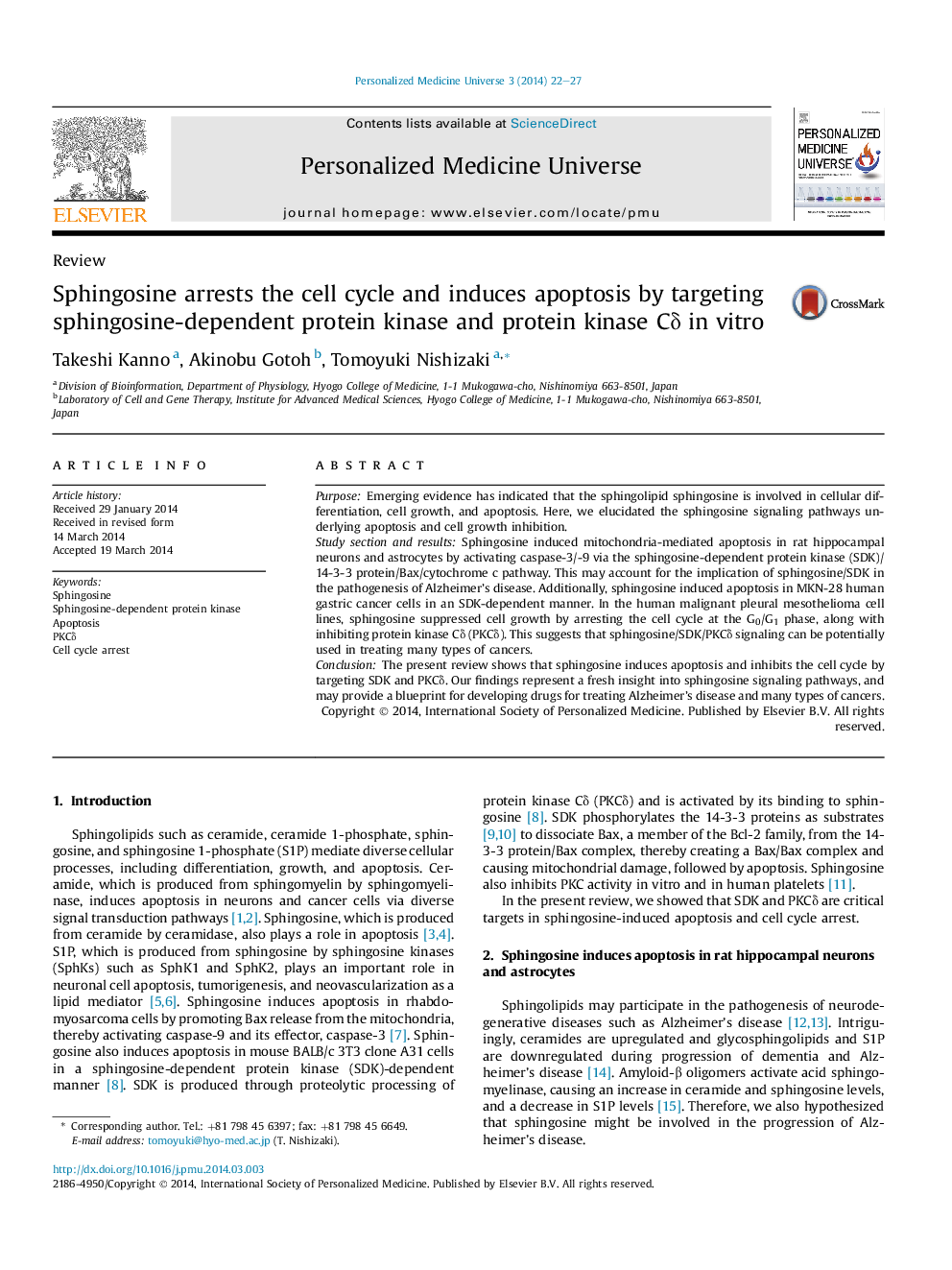| Article ID | Journal | Published Year | Pages | File Type |
|---|---|---|---|---|
| 3382647 | Personalized Medicine Universe | 2014 | 6 Pages |
PurposeEmerging evidence has indicated that the sphingolipid sphingosine is involved in cellular differentiation, cell growth, and apoptosis. Here, we elucidated the sphingosine signaling pathways underlying apoptosis and cell growth inhibition.Study section and resultsSphingosine induced mitochondria-mediated apoptosis in rat hippocampal neurons and astrocytes by activating caspase-3/-9 via the sphingosine-dependent protein kinase (SDK)/14-3-3 protein/Bax/cytochrome c pathway. This may account for the implication of sphingosine/SDK in the pathogenesis of Alzheimer's disease. Additionally, sphingosine induced apoptosis in MKN-28 human gastric cancer cells in an SDK-dependent manner. In the human malignant pleural mesothelioma cell lines, sphingosine suppressed cell growth by arresting the cell cycle at the G0/G1 phase, along with inhibiting protein kinase Cδ (PKCδ). This suggests that sphingosine/SDK/PKCδ signaling can be potentially used in treating many types of cancers.ConclusionThe present review shows that sphingosine induces apoptosis and inhibits the cell cycle by targeting SDK and PKCδ. Our findings represent a fresh insight into sphingosine signaling pathways, and may provide a blueprint for developing drugs for treating Alzheimer's disease and many types of cancers.
